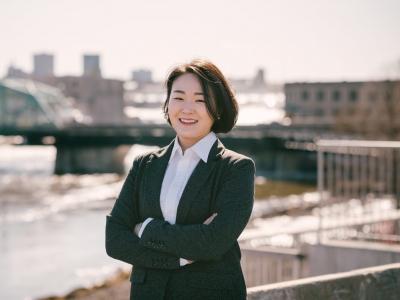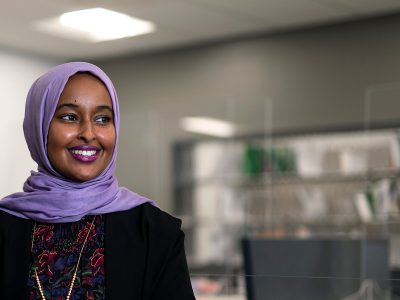By Jena Lynde-Smith
Three years after fleeing Taliban-ruled Afghanistan, Farida Nekzad crossed the stage at Carleton University’s convocation ceremony on June 18. Her journey as an Afghan refugee, marked by unspeakable hardship, stands as a testament to her resilience and determination.
“This graduation is a really exciting moment for me,” says Nekzad. “Despite the challenges – the stress, emotional trauma and economic troubles – I can say I made it.”

Farida Nekzad accepts her Master of Journalism degree at Carleton’s convocation on June 18 (photo by Brenna Mackay)
Journey of an Afghan Refugee
On August 21, 2021, as the city of Kabul fell to the Taliban, Nekzad made the difficult decision to escape the country with her 12-year-old daughter and brother-in-law, forced to leave behind her husband and other family members. Navigating her neighbourhood, now a war zone, she made it out with only a few possessions.
“My purpose in undertaking this journey was twofold: to secure a better future for my daughter, and to advocate for the rights of women who continue to live under the Taliban’s oppressive rule,” Nekzad wrote in a Hill Times article.
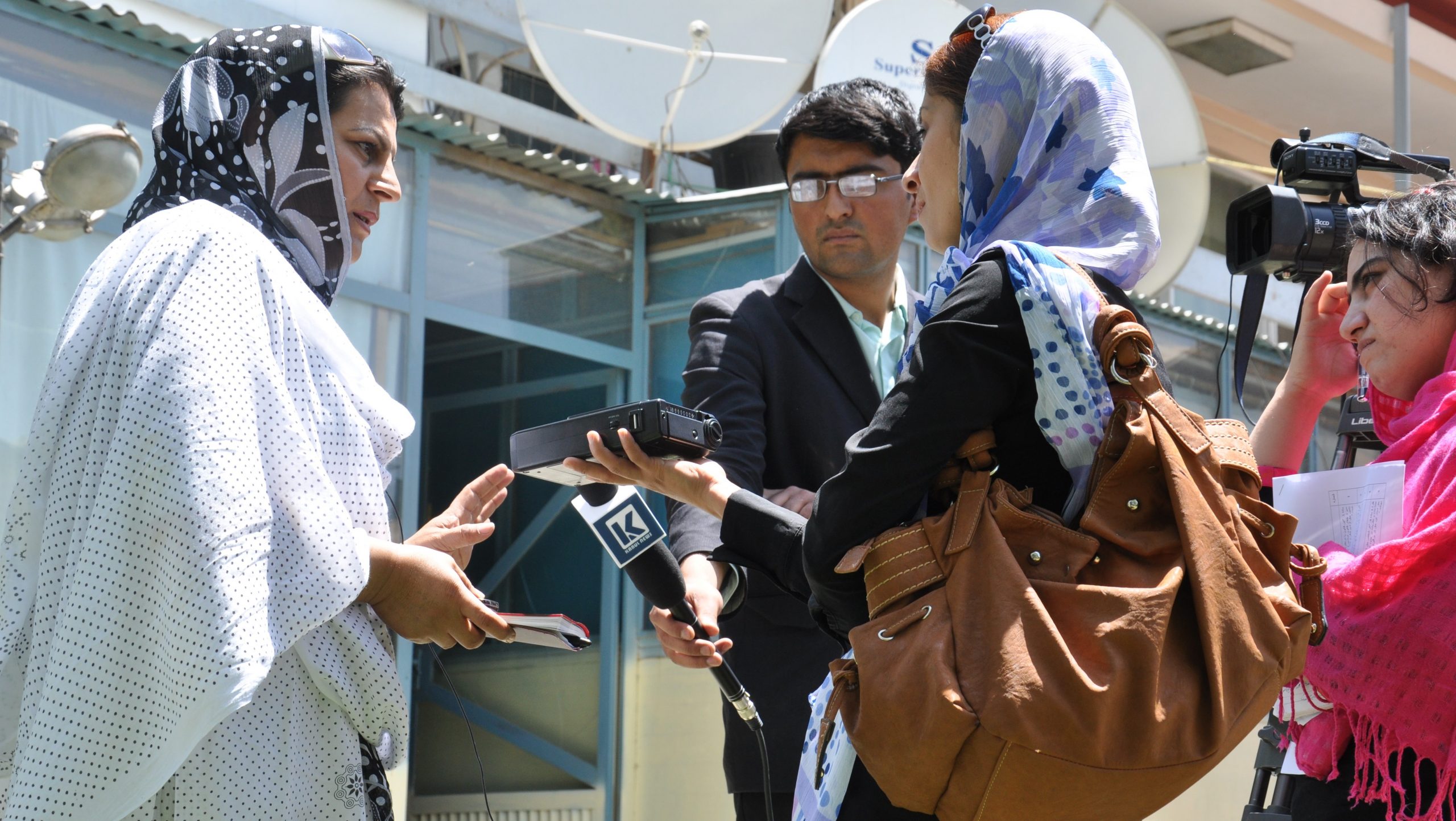
Nekzad worked as a journalist and media advocate in Afghanistan for over 25 years
Nekzad is an award-winning journalist, media activist and coach of over two decades. She’s been recognized for her renowned work with the International Women’s Media Foundation Courage in Journalism Award, an International Press Freedom Award from the Committee to Protect Journalists, and the Prize for the Freedom and Future of the Media from the Media Foundation of Sparkasse Leipzig.
When she fled, she had to abandon her position as the director of the Centre for the Protection of Afghan Women Journalists — an organization that she founded.
“When I left Afghanistan, I thought my life was over,” she recalls. “I left my family, my friends, my colleagues, the city I was born in… my memories.”
But it wasn’t over for Nekzad.
Shortly after arriving in Canada, Nekzad began meeting with organizations in effort to find work in her field, including Carleton’s School of Journalism and Communication. On Dec. 1, 2021, she was officially welcomed to the department as a journalist-in-residence with support from Carleton’s president and provost, the dean of the Faculty of Public Affairs, and the Scholars at Risk program.
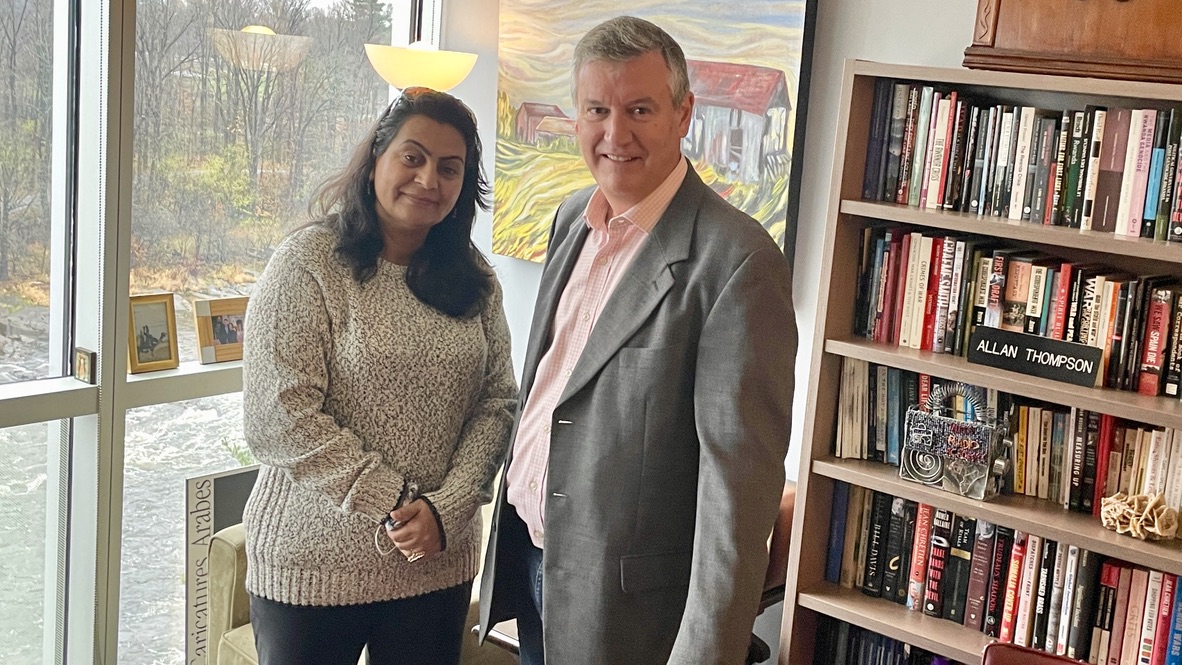
Nekzad and Allan Thompson, Director of the School of Journalism and Communication, upon her arrival at Carleton
“To my mind, it was very important for Carleton’s journalism program to play a role in helping one of the journalists who had fled Afghanistan to make that transition in Canada,” says Allan Thompson, Director of the School of Journalism and Communication.
“And Farida also had an incredibly important role to play, to use a base at Carleton to continue her work investigating the situation of Afghan journalists, particularly women, and to remind the world of their plight.”
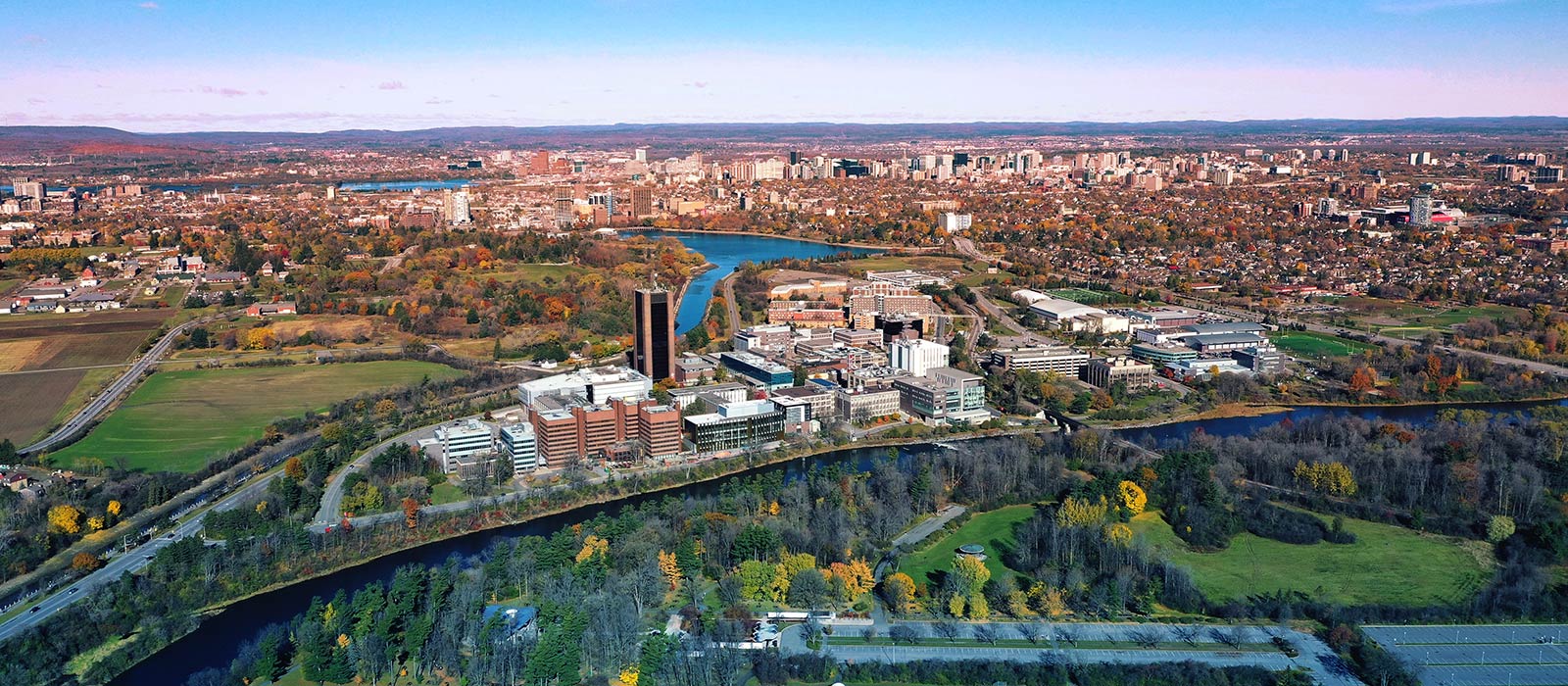
Fulfilling Her Academic Dream
Nekzad spent a year in the journalism program where she met with students, spoke in classes, participated in panel events and made media appearances. While acclimating to the academic landscape in Canada, she longed to fulfill her dream of furthering her journalism education. An ambition that was previously hindered by her country’s conflict.
“I was studying journalism at Kabul University, but the Taliban banned women from attending school,” Nekzad says. “They took all of the fundamental rights for girls and women.”
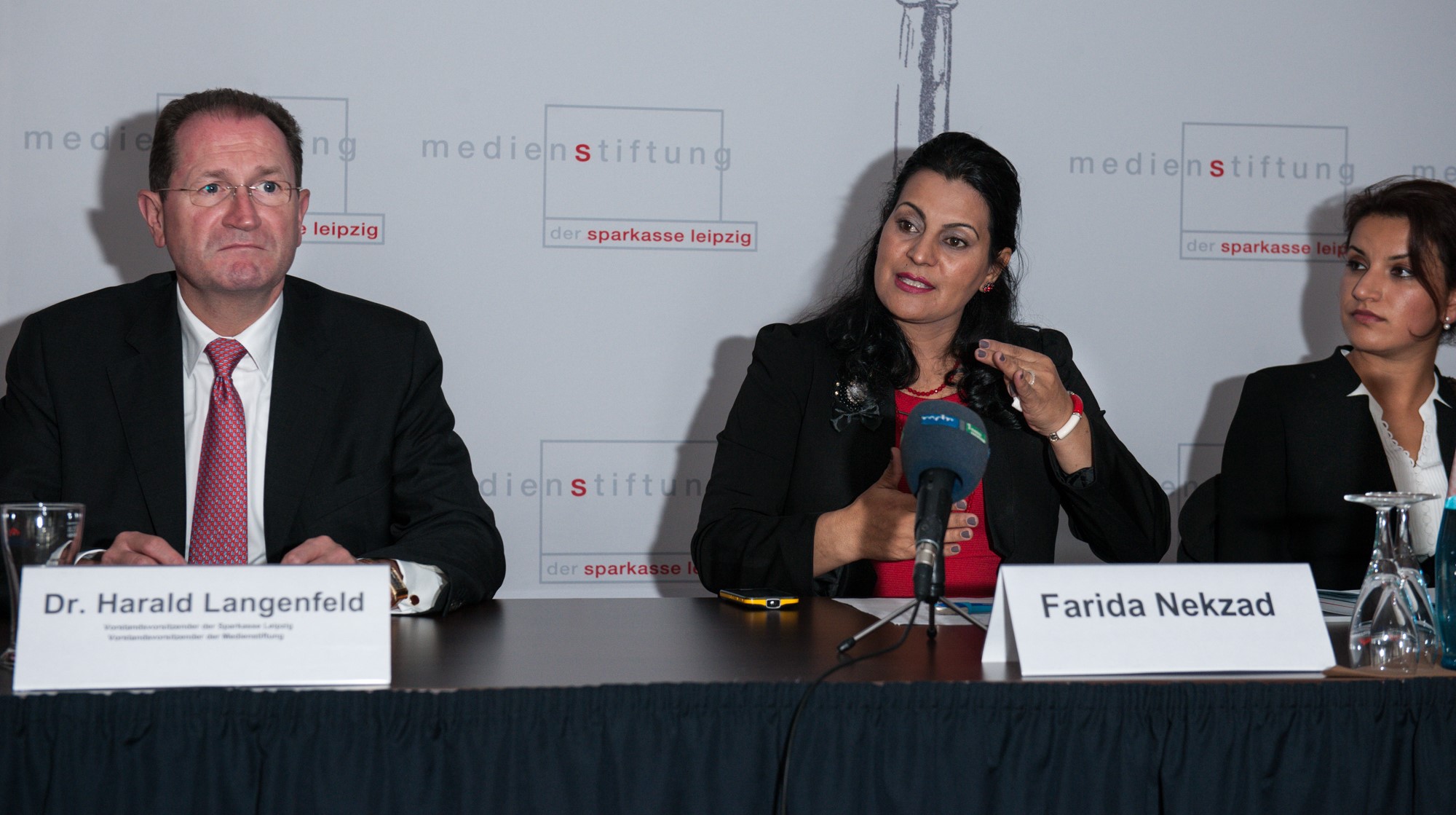
Nekzad speaking after receiving her award from the Media Foundation of Sparkasse Leipzig in Germany
“It was my dream since I was a teenager to continue to my academic career.”
This dream was realized for Nekzad when she was accepted to Carleton’s Master of Journalism program in 2022.
“When I came to Ottawa, it made magic for me,” she says. “Carleton gave me a great opportunity.”
Over the course of two years, Nekzad plugged away at her degree. With English not being her first language, she struggled to adjust at first.
“I was an educator in Afghanistan, I trained over 2,000 student journalists. But English is a different story,” she says. ” I am very thankful for the journalism faculty members; they always understood my situation.”
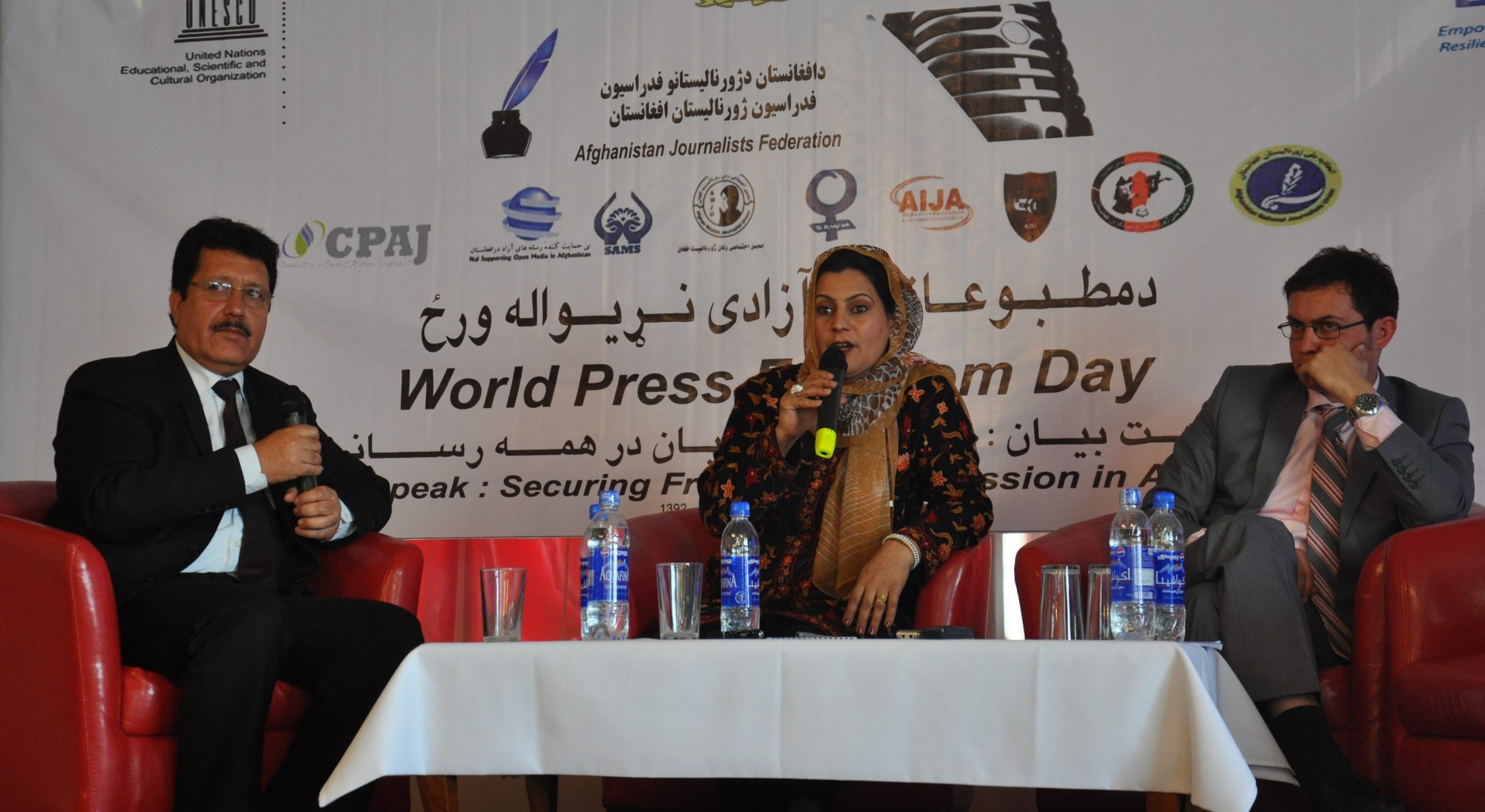
Nekzad speaks at a World Press Freedom Day event
Nekzad eventually found her footing in the program and began working on her master’s research project (MRP) under the supervision of Carleton journalism professor, Christine Crowther.
Her MRP, which is a longform piece of journalism, takes a deep dive into the experiences of women journalists in Afghanistan. It uncovers the often-under-reported situation for them, pulling stories from members of the Centre for the Protection of Afghan Women Journalists. Nekzad launched the Centre in 2017, where she worked until she fled.
“It was a very valuable and active organization in Afghanistan for women journalists,” Nekzad says.
Before Taliban take-over, the centre had around 400 members, and while most members have been forced into exile, nearly 50 of them remain in war-torn Afghanistan.
Despite having to leave, Nekzad supports the organizations’ members from afar with help from International Collaboration of Journalists and Journalists Without Borders. She remains in contact with them, making herself available for advice.
“Being a senior journalist, I feel an obligation to the junior journalists. I want to keep them safe,” she says. “They are counting on me.”
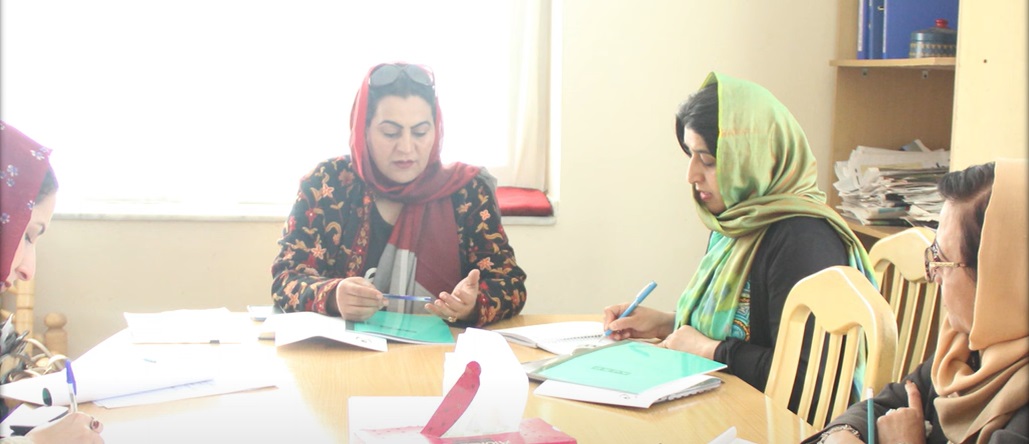
Advocating for Afghan Women
In addition to her research, Nekzad’s degree provided her the opportunity for an internship at the Hill Times – a leading Canadian political and policy newspaper. During her placement, she produced an important and emotional story about the Taliban’s impact on women and press freedom in Afghanistan.
“At present, I possess both the agency and the platform to advocate for women who continue to grapple with their rights and endure trauma,” she writes. “My commitment lies in amplifying their voices and supporting women journalists in their pursuit of freedom of expression.”
Earlier this year, Nekzad was finally joined by her husband, a long-awaited reunion for her family.

Nekzad with brother-in-law, daughter and husband at her convocation on June 18 (photo by Brenna Mackay).
Nekzad’s journey has been marked with struggle but with the determined and resilient spirit of a mother, journalist, academic, refugee and advocate, she has persevered.
On June 18, just days before World Refugee Day, she received her Master of Journalism degree at Carleton’s convocation ceremony. While she still longs to return to Afghanistan free of Taliban-rule, she remains eternally grateful for the opportunities she has been afforded.
“I am really happy and proud,” says Nekzad. “When I left Afghanistan, I cried every day for months. But everyone at Carleton gave me courage and support. They always encouraged me to keep going.”
“Now I have this honour – and it is a big honour for me. I am very happy to say I’ve made it.”

Lead image by iStock / Konstantin_Novakovic
Monday, June 17, 2024 in Convocation 2024, International, Refugees
Share: Twitter, Facebook
